Navigating the complex interplay between law, ethics, and business can be a daunting task. As I dive into this topic, it becomes clear that understanding these relationships is crucial for any successful entrepreneur or business leader. Laws provide a framework for acceptable conduct, while ethics guide our moral compass and decision-making processes.
In the business world, these elements often intersect, influencing everything from corporate governance to stakeholder relationships. It’s essential to recognize how legal obligations can shape ethical standards and how ethical considerations can impact legal compliance. By exploring these dynamics, I hope to shed light on how to select the true statements that define this intricate relationship and empower businesses to thrive responsibly.
Key Takeaways
- Understanding Law and Ethics: Law provides the mandatory framework for business conduct, while ethics guide moral decision-making and may vary across cultures and industries.
- Interplay in Corporate Governance: The relationship between law and ethics is crucial for corporate governance, as businesses navigate legal standards while adhering to ethical practices to maintain trust and sustainable operations.
- Ethical Decision-Making Frameworks: Utilizing ethical decision-making frameworks, such as utilitarian and rights-based approaches, helps leaders make informed and responsible choices that align with stakeholder interests.
- Challenges of Compliance: Legal compliance establishes a baseline but does not guarantee ethical behavior; businesses must strive for ethical standards beyond mere adherence to laws.
- Dynamic Nature of Law and Ethics: Laws can evolve in response to shifting societal ethical norms, highlighting the need for businesses to stay adaptable and aware of both legal regulations and ethical considerations.
- Long-term Success and Reputation: Prioritizing ethics alongside legal compliance fosters trust and can enhance long-term profitability, as ethical lapses may lead to reputational damage and financial losses.
Select the True Statement About the Relationship Between Law, Ethics, and Business.
Law and ethics play vital roles in shaping business operations and decision-making processes. Laws provide a framework of rules that dictate acceptable practices within both local and global contexts. For instance, regulations like the Sarbanes-Oxley Act enforce transparency and accountability in financial reporting for publicly traded companies.
Ethics, contrastingly, deal with the moral principles guiding behavior. While legal compliance is mandatory, ethical conduct varies across cultures and industries. Businesses often face dilemmas where legal actions conflict with ethical considerations. This discord can influence reputation and long-term success.
The intersection of law and ethics is critical for corporate governance. Companies must navigate these waters to maintain stakeholder trust and sustainable practices. For example, while a business may legally source materials from certain suppliers, ethical sourcing practices demand careful consideration of labor conditions and environmental impact.
Decision-makers in business must strike a balance between adhering to legal standards and upholding ethical commitments. Ignoring one aspect can lead to legal repercussions, loss of customer loyalty, and damage to brand equity. Understanding this relationship equips entrepreneurs and leaders with the tools to operate responsibly in a complex marketplace.
Understanding Law in Business
Law in business encompasses a set of rules and principles that govern commercial activities. It defines rights, responsibilities, and procedures that businesses must follow to operate legally and successfully.
Definition and Scope
Law refers to established regulations that govern behavior in society. In business, it includes statutory laws, regulations, and judicial precedents relevant to various industries. Examples include employment laws, intellectual property laws, and environmental regulations. The scope also covers contract law, which ensures agreements between parties are enforceable. Understanding these laws helps businesses navigate legal frameworks and avoid potential liabilities.
Importance in Business Operations
Law plays a crucial role in business operations by providing a framework for orderly conduct. It fosters fair competition, protects consumer rights, and ensures ethical behavior among businesses. Adhering to legal obligations minimizes risks and protects against lawsuits. Compliance with laws, such as the Foreign Corrupt Practices Act, enhances a company’s reputation and builds consumer trust. Laws also dictate corporate governance mechanisms, guiding decision-making processes and accountability. By recognizing the importance of law, businesses can operate effectively and sustainably in the marketplace.
The Role of Ethics in Business
Ethics play a crucial role in guiding business practices and shaping organizational culture. They serve as the foundation for decision-making, influencing how businesses interact with stakeholders.
Defining Business Ethics
Business ethics refers to the principles and standards that guide behavior in the world of commerce. These principles encompass a range of concepts, including honesty, integrity, fairness, and respect for stakeholders. Understanding business ethics involves recognizing how these values align with a company’s mission and impact its reputation. Ethical lapses can lead to diminished trust, financial losses, and legal repercussions. Consequently, businesses must actively articulate their ethical standards and integrate them into their overall strategy.
Ethical Decision-Making Frameworks
Ethical decision-making frameworks provide structured approaches for addressing moral dilemmas in business. These frameworks help leaders evaluate the potential consequences of their actions and consider the interests of various stakeholders. Common frameworks include:
- Utilitarian Approach: Focuses on maximizing overall happiness and minimizing harm.
- Rights-Based Approach: Emphasizes the rights of individuals and ensures fair treatment for all involved.
- Justice Approach: Concentrates on fairness and equality in decision-making processes.
- Virtue Ethics Approach: Highlights the importance of character and moral virtues in guiding behavior.
Using these frameworks can lead to informed and ethical choices, fostering a culture of accountability and responsibility within organizations. By implementing ethical decision-making processes, businesses enhance their credibility and strengthen relationships with customers, employees, and the community.
Interconnection Between Law and Ethics
Law and ethics are intertwined concepts that guide business conduct. While laws create mandatory standards, ethics represent voluntary guidelines that shape moral behavior in the business environment. Select the true statement about the relationship between law, ethics, and business.
Comparison of Legal and Ethical Standards
- Nature of Compliance: Legal standards require adherence to enforceable rules; ethical standards represent ideals guiding behavior.
- Scope of Application: Legal standards apply universally across jurisdictions; ethical standards can vary significantly by culture and industry.
- Consequences of Violations: Legal violations result in penalties, including fines or imprisonment; ethical violations often lead to reputational damage and loss of trust.
- Source of Authority: Legal standards derive from government statutes and regulations; ethical standards emerge from societal norms and personal values.
- Enforcement Mechanisms: Legal standards enforce compliance through the judicial system; ethical standards rely on self-regulation and organizational policies.
- Framework for Conduct: Laws establish the minimum acceptable behavior, shaping ethical norms within industries.
- Guidance for Decision-Making: Legal obligations provide a roadmap when navigating ethical dilemmas, ensuring businesses remain compliant while upholding ethical values.
- Reinforcement of Expectations: Legal frameworks reinforce the expectation that companies maintain ethical practices to avoid fines and litigation.
- Promotion of Fairness: Laws promote fair competition and protect stakeholders, encouraging companies to adopt ethical practices that exceed legal requirements.
- Integration into Corporate Culture: Compliance with laws fosters a culture of accountability, enhancing ethical standards and reinforcing good business practices.
Selecting the True Statement
In understanding the relationship between law, ethics, and business, it’s crucial to analyze common statements that illustrate this interplay.
Analysis of Common Statements
I examine several statements to identify which accurately reflects the connection between law, ethics, and business practices.
- “”Compliance with laws ensures ethical behavior.””
Compliance with laws establishes a baseline for behavior but doesn’t guarantee ethical conduct. Legal compliance may fulfill minimum standards without addressing deeper ethical considerations. - “”All ethical actions are legal.””
Not all ethical actions align with legal frameworks. For instance, whistleblowing can be ethically motivated, yet it may breach confidentiality agreements or company policies. - “”Business ethics is merely following the law.””
Business ethics extends beyond mere legal adherence. Ethical principles guide decisions that may not be addressed by existing laws, promoting fairness and transparency in operations. - “”Laws evolve based on ethical standards.””
Laws can shift in response to changing ethical norms. Historical examples include civil rights legislation, which emerged from evolving societal values around equality and fairness.
Evaluating the Truthfulness of Statements
I assess the validity of these statements while recognizing the need for a nuanced understanding.
- “”Law and ethics are independent.””
Law and ethics interact but aren’t entirely independent. Legal frameworks may reflect societal ethics, while breaches of ethics often prompt legislative changes. - “”Businesses prioritize profit over ethics.””
Prioritizing profit at the expense of ethics can lead to short-term gains but may harm reputation and long-term success. Ethical business practices contribute to sustainable profit by fostering trust and customer loyalty. - “”Ethical failures are always legally punishable.””
Ethical failures may not always result in legal consequences. While unethical decisions can lead to reputational damage and financial losses, legal repercussions depend on specific violations of law. - “”Strong ethical foundations reduce legal risks.””
Strong ethical foundations enhance risk management. Companies with robust ethics programs often experience fewer legal issues and higher employee morale, contributing to overall stability.
Law and Ethics
Select the true statement about the relationship between law, ethics, and business. I’ve seen firsthand how companies that prioritize ethical decision-making alongside legal compliance build stronger reputations and foster trust among stakeholders. It’s clear that while laws provide a necessary framework for acceptable behavior, ethics guide the moral compass of an organization.
By understanding this dynamic, business leaders can make informed decisions that not only meet legal standards but also resonate with their core values. This balance is crucial for long-term sustainability and resilience in a complex marketplace. Embracing both law and ethics ultimately leads to a more responsible and successful business environment.



![[author] business ethics for managers and leaders course](https://westbrightlaw.com/wp-content/uploads/2024/11/43692c61-2758-4ecf-870e-67b6beea24b5_y91iE6L8oWa_1dxBEeN2l-1024x585.jpeg)